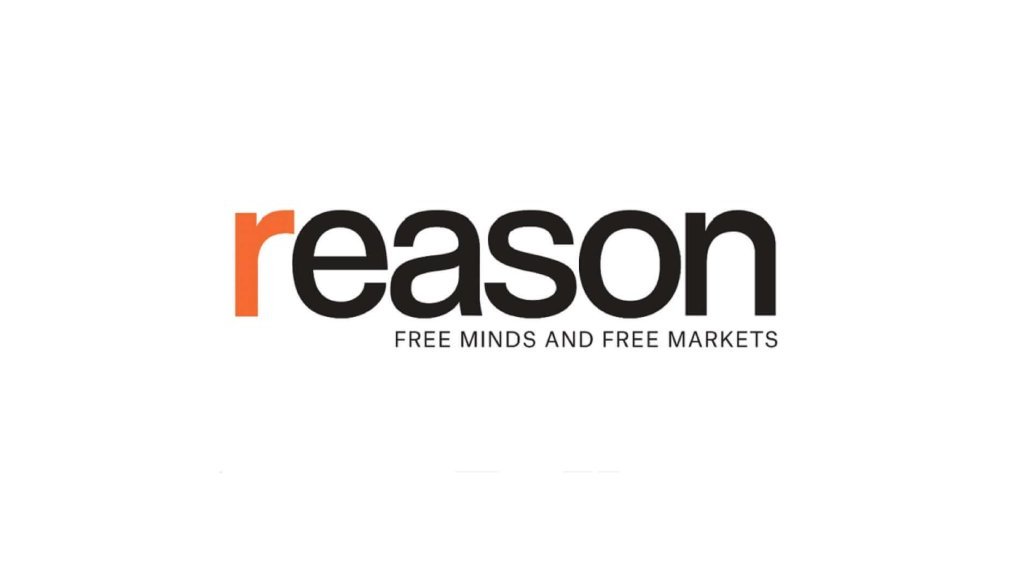10 Examples of Absurd Fallout From the U.K.’s Online Safety Act
A law in effect for less than two weeks is already wreaking havoc all over the internet.
The United Kingdom law—called the Online Safety Act—is purportedly about protecting children. The best I can say about its rollout is that maybe it will serve as a cautionary tale for lawmakers here.
It’s certainly not stopping motivated individuals—and who is more motivated than a teen told they can’t do something?—from accessing verboten content. “Let’s start with the most obvious sign that this law is working exactly as poorly as critics warned: VPN usage in the UK has absolutely exploded,” notes Mike Masnick at Techdirt. “Proton VPN reported an 1,800% spike in UK sign-ups. Five of the top ten free apps on Apple’s App Store in the UK are VPNs. When your ‘child safety’ law’s primary achievement is teaching kids how to use VPNs to circumvent it, maybe you’ve missed the mark just a tad.”
But the Online Safety Act is putting up roadblocks for people who want to read about world news, view classic art, listen to music on Spotify, chat with friends on Discord, play video games, find information about quitting smoking, or join antimasturbation groups.
To be clear, the U.K. government isn’t explicitly ordering restrictions or blocks on all this content. But blocks like these are an inevitable result of the system they are ordering.
The portion of the law that took effect on July 25 requires websites with content that authorities have deemed “harmful to children” to verify user ages and restrict content for anyone under age 18, or anyone who declines to submit to an ID check, facial scan, or other privacy-invading measures. Sites must entirely block minors and anonymous accounts from accessing sexual imagery and content related to self-harm, suicide, or eating disorders. They must also make efforts to restrict their access to an even wider range of “priority content,”—including anything that is hateful or “abusive” about race, religion, sex, sexual orientation, disability, or gender reassignment—as well as bullying content, content depicting violence, content encouraging risky challenges, content encouraging substance use, and more.
What could go wrong?
Notably, the rules don’t just apply to U.K. companies but any tech platform with a significant number of users in the U.K. or the U.K. as a target market. And the rules for noncompliance can be steep, ranging from fines for companies to penalties for senior managers to the government taking “business disruption measures” that might include ordering third parties, like payment processors, to terminate service to a targeted company.
“Already 5m extra online age checks a day (yes, every day) are being carried out in the UK since the introduction of age-gating for pornography sites alone, according to new data from the Age Verification Providers Association (AVPA),” according to The Guardian.
As of last Friday, 26 percent of people in the U.K. said they encountered new restrictions on internet content. And while the percentage of Britons supporting the law is still high, it has shrunk dramatically in the first week of implementation: from 80 percent to 69 percent, per YouGov polling.
For U.K. residents, the options are either to accept that their internet experience will be sanitized as if they’re children, to circumvent the law by surfing the web exclusively using a VPN, or to submit to all sorts of different age-verification services (including ID checks and facial scans) that could leave their identities and information vulnerable.
“Even when these systems ‘work,’ they’re creating massive honeypots of personal data,” points out Masnick. “As we’ve seen repeatedly, companies collecting biometric data and ID verification inevitably get breached, and suddenly intimate details about people’s online activity become public. Just ask the users of Tea, a women’s dating safety app that recently exposed thousands of users’ verification selfies after requiring facial recognition for ‘safety.'”
U.K. residents are already reporting a host of troubles with accessing all sorts of content. Let’s dive into these mishaps, shall we?
(Note: I have not independently verified that all of the following allegedly restricted content is actually restricted,so take all of this with a grain of salt. But reports of such restrictions are coming from far and wide.)
No ID? No NoFap.
Per the Free Speech Coalition’s Mike Stabile,”Reddit has now blocked r/NoFap in the UK over the Online Safety Act. The anti-masturbation forum can now not be accessed unless you submit biometrics or identifying information.” On the NoFap subreddit, multiple users have complained about being required to give information in order to view the NoFap forum’s content.
War News and Debates About Sexual Predators Blocked
“Social media companies are blocking wide-ranging content – including posts about the wars in Ukraine and Gaza – in an attemp
Article from Reason.com

The Reason Magazine website is a go-to destination for libertarians seeking cogent analysis, investigative reporting, and thought-provoking commentary. Championing the principles of individual freedom, limited government, and free markets, the site offers a diverse range of articles, videos, and podcasts that challenge conventional wisdom and advocate for libertarian solutions. Whether you’re interested in politics, culture, or technology, Reason provides a unique lens that prioritizes liberty and rational discourse. It’s an essential resource for those who value critical thinking and nuanced debate in the pursuit of a freer society.




